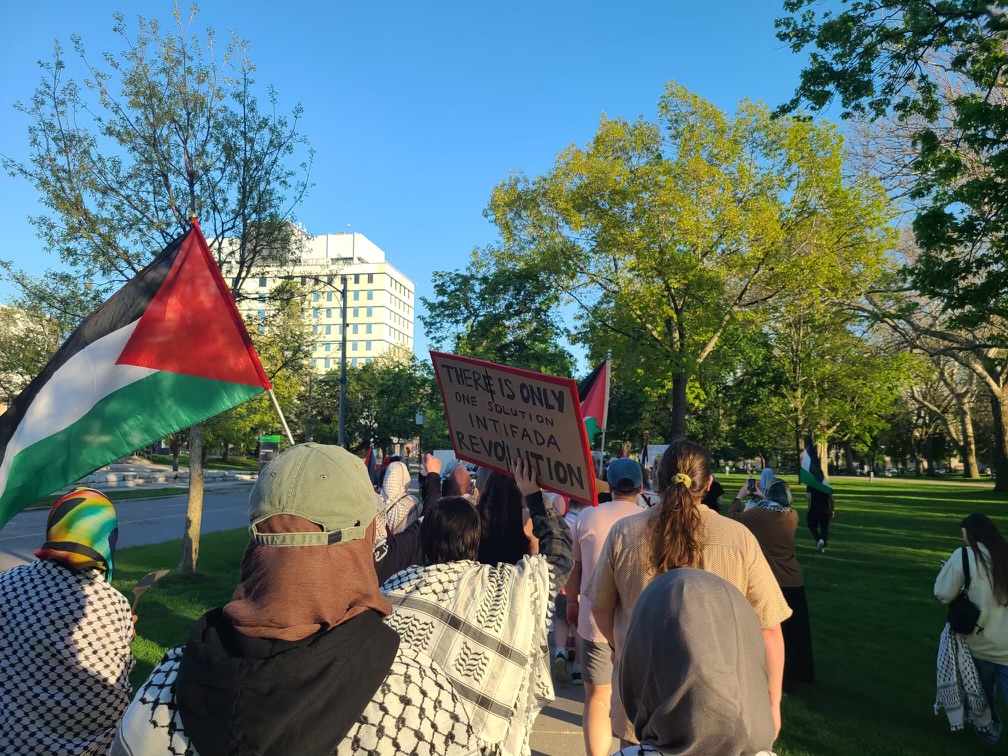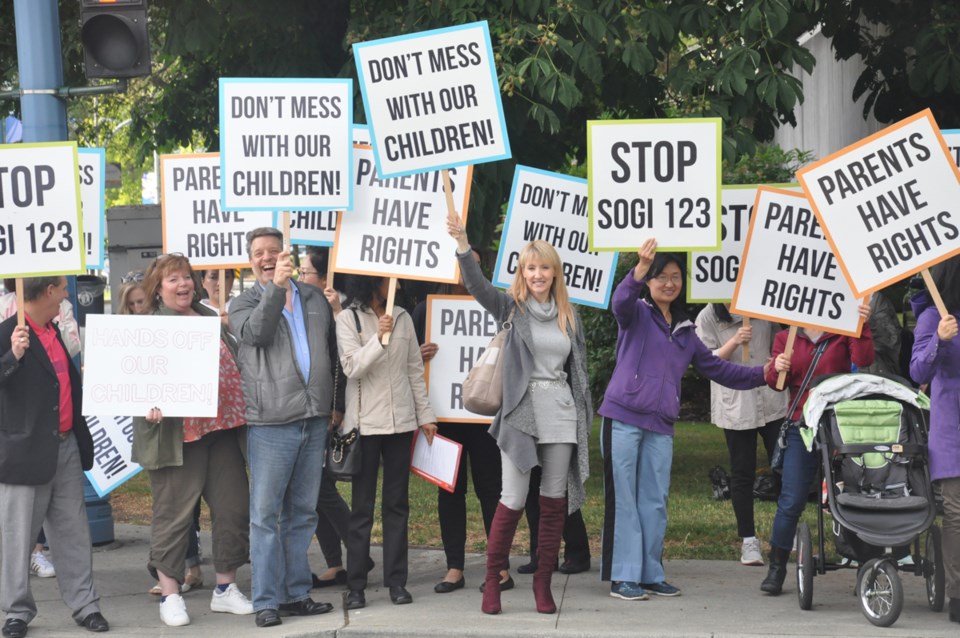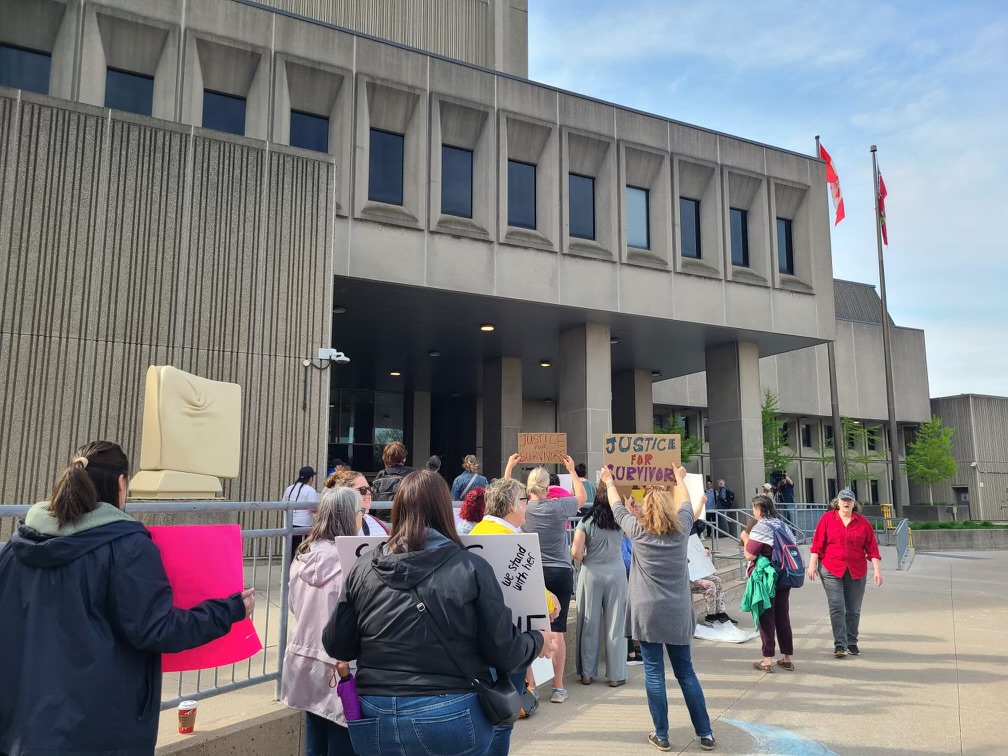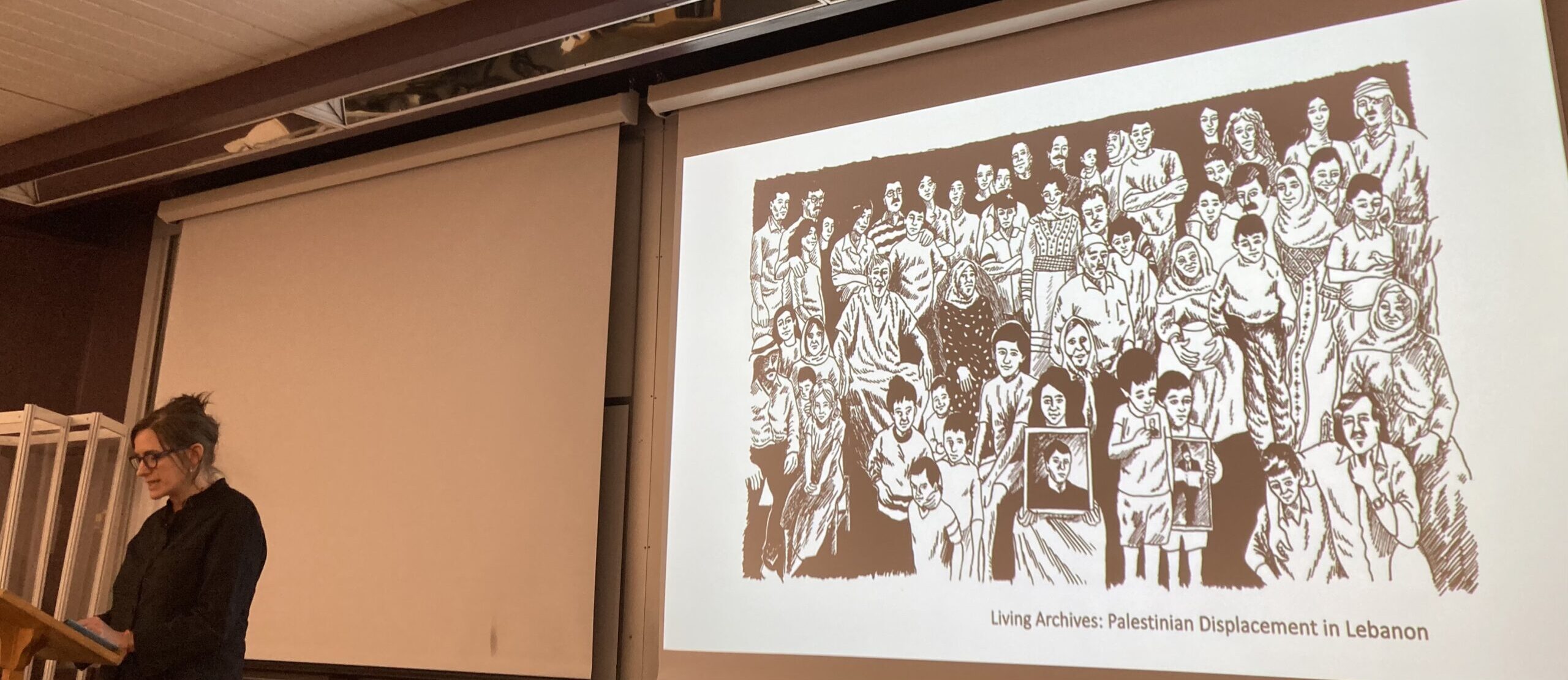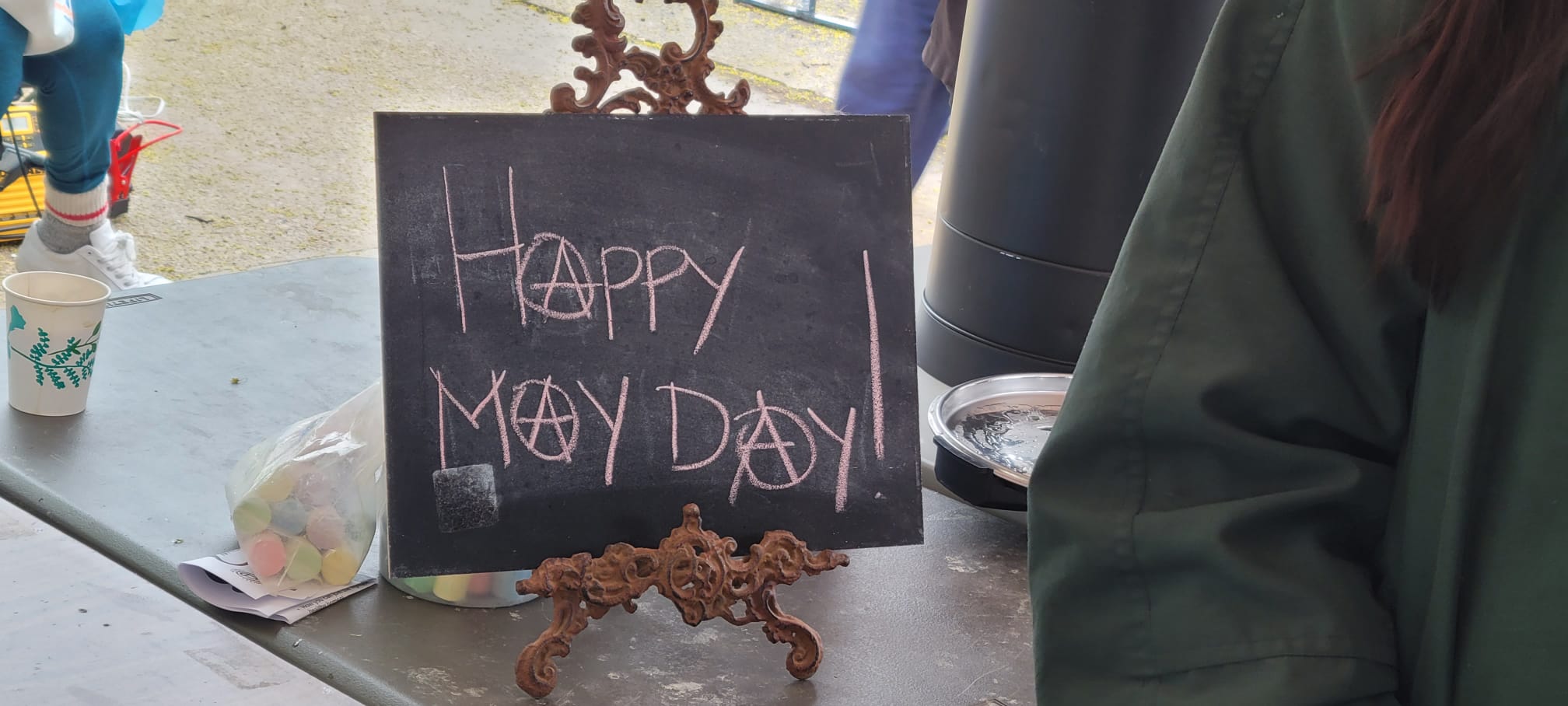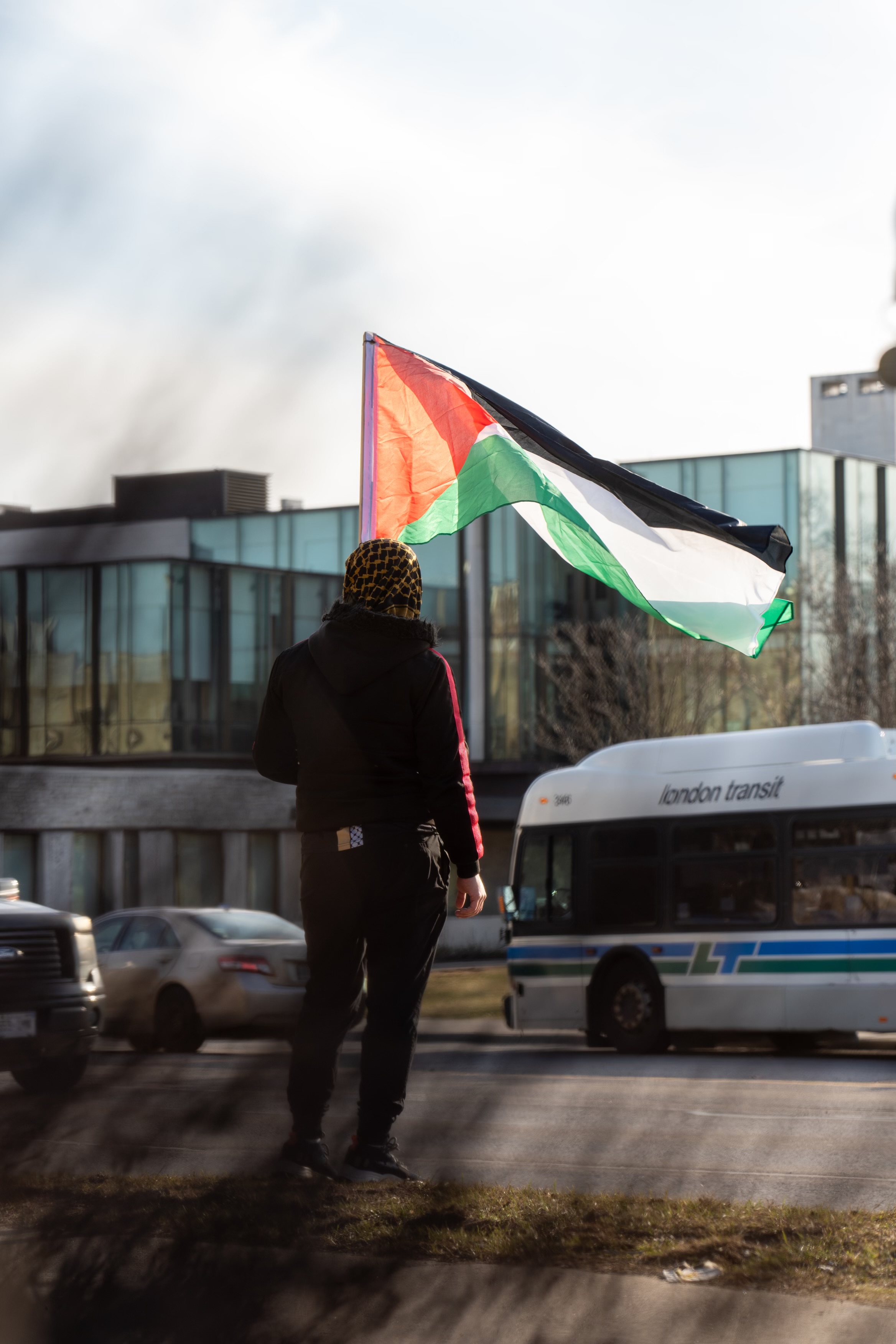Israeli violations of international law go down the ‘memory hole’ in Western reporting: former UN Special Rapporteur
Incé Husain
Sat August 24, 2024
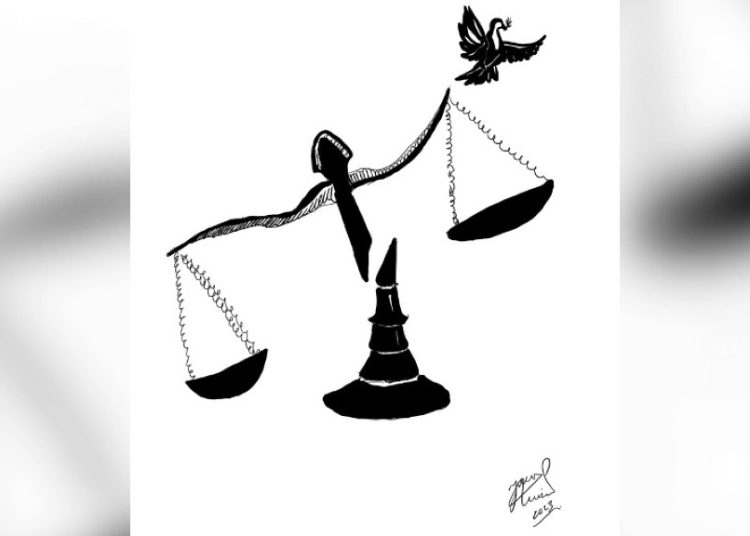
U.S. shields State of Israel from consequences for repeated violations, says legal scholar Michael Lynk
Originally published at NB Media Coop on November 9, 2023
Israel violates international law with impunity because of unconditional U.S. support and highly skewed journalism that routinely ignores Israel’s record of human rights violations in the Occupied Palestinian Territories.
That’s according to a Canadian legal scholar who served as a senior United Nations official examining human rights in the Occupied Palestinian Territories.
“Israel is, as an occupier, in serious breach of international human rights law, international humanitarian law — which are the laws of war and occupation — and international criminal law as well. And this all goes down a memory hole in Western reporting in Israel and Palestine,” said Michael Lynk in an interview.
“Israel has an exceptionally strong diplomatic/military/economic relationship with the United States. [Former UN secretary-general] Kofi Annan says in his memoirs that the principal reason for the fact that there’s no accountability for Israel is the diplomatic shield given to Israel by the United States. He’s not the only one who’s said that.”
Between 2016 and 2022, Lynk served as UN Special Rapporteur for the situation of human rights in the Palestinian territories occupied since 1967.
The violence in Gaza in the last several weeks has plunged Israel’s military occupation of Palestinian territories into the global consciousness.
As Israel’s violations of international law in the Occupied Palestinian Territories start to become common knowledge, there is increased interest in understanding why Israel has never faced consequences.
Today, Israel remains uncriticized by most Western leaders as it commits a plethora of war crimes in Gaza, with civilian deaths surpassing 10,000.
Over a Zoom call from London, Ont., Lynk said Israel’s freedom from punishment is rooted in its all-encompassing support from the U.S. and the associated biases in journalistic reporting.
He believes that this can be overcome by citizens consistently engaging in civil disobedience to pressure governments into enforcing international law.
“I like to think that civil society is the unspoken superpower in international politics,” said Lynk. “You can’t unsee what you have seen. There will be counterintuitive information spread, [but propaganda] slogans only go so far before people say ‘that doesn’t match what I’m seeing in front of my eyes and what I’m reading in the paper through reputable sources.’”
The role of a Special Rapporteur consists of writing reports on human rights trends and delivering them to the UN.
Lynk’s reports as Special Rapporteur have called for an end to the Israeli occupation of territories occupied since the Six-Day War in 1967 – namely the West Bank, including East Jerusalem, and the Gaza Strip – and are loaded with accounts of its international law violations.
Israel barred Lynk from entering both Israel and the Occupied Territories throughout his term as Special Rapporteur. He wrote his reports by relying on human rights documentation by Palestinian, Israeli, and international human rights organizations.
Lynk outlined four of the many international law violations Israel has committed: annexation, settler expansion, starvation, and equating civilians with combatants.
The term “annexation” describes the forceful takeover of another country and proclaiming rule over the land. Israel annexed parts of the West Bank and East Jerusalem in 1967 and 1980, and has steadily continued to illegally annex Occupied Palestinian territories since. This has greatly harmed Palestinian society by subjecting Palestinians to increasingly aggressive human rights violations.
“It has been absolutely forbidden since the end of the Second World War for an occupying power to annex a territory captured during war,” Lynk said. “It has to return the occupied territory in full, as quickly as possible, to the sovereignty, which are people under occupation.”
Israel has illegally built 300 settlements filled with 720,000 Israelis settlers in East Jerusalem and the West Bank, according to Lynk. This “settler expansion” is a means for the occupying power to claim rule over all the land it seized through military conquest. The UN Security Council and the UN General Assembly have repeatedly stated that these Israeli settlements are a violation of international law.
“It has been forbidden for 74 years under the Fourth Geneva Convention for an occupying power to put any part of its civilian population into the occupied territory,” said Lynk. “And the reason for that is that putting your civilian population into the occupied territory is a prelude to making a claim of sovereignty over the occupied or conquered land.”
On October 9 Israel cut off Gaza’s access to food, water, electricity, fuel, and even animal fodder. Lynk said this move was the basis for starvation and mass deprivation, a breach of international law. And Israel’s incessant bombing of Gaza has killed thousands of civilians, he noted, revealing that Israel is not distinguishing between civilians and combatants.
“The very core of international humanitarian law is the separation and the distinction between combatants on the one hand and civilians on the other,” said Lynk. “If you’re targeting combatants, but in doing so you’re either deliberately, recklessly, or indiscriminately bombing areas where you know there are going to be a large number of civilians gathering and they’re likely to be harmed by that, that is a fundamental breach of international law. It amounts to a war crime.”
Lynk said that all this documentation is ignored by both Western leaders and mainstream media, creating a narrative that sidelines Israel’s violence and protects it from consequences. Israel denies that it breaches international law, Western leaders do not hold it accountable, and the evidence is banished to a “memory hole” that stays unperturbed as Israel continues its onslaughts.
The term “memory hole” is a reference to George Orwell’s dystopian novel Nineteen Eighty-Four, in which records such as documents and photographs are destroyed by sending them down a chute for incineration, as part of efforts to rewrite history.
Lynk emphasized that Article 25 of the Charter of the UN demands that all member states, including Israel, must obey its decisions; yet, the global North — Europe and North America — ensures that Israel is immune by staying silent on its blatant violations of international law.
He added that Canadian reporting on the Occupied Palestinian Territories and Israel is “exceptionally poor,” with no full-time journalists in the occupied territories and news coverage that rarely references international law.
“The reporting in Canada tends to see Israel and the Occupied Palestinian Territories as two separate teams on a soccer field. This is not a football match,” said Lynk. “It’s one nation ruling over and subjugating another nation. This is an occupation that has metastasized into annexation and apartheid, and we don’t see that kind of reporting in most mainstream media.”
Lynk said that Israel remains undeterred by international law due to its “exceptionally strong” relationship with the United States. He said that the United States consistently vetoes progressive UN Security Council resolutions on the Occupied Palestinian Territories, preventing other countries from taking a stand. Since 1973, the United States has issued 84 vetoes as a permanent member of the UN Security Council; half of these served to protect Israel. This was recently exemplified during the October 18 UN Security Council vote for humanitarian pauses in Gaza to deliver life-saving aid to millions of civilians. Most countries voted in favour of the pause, but the United States voted against it and nullified the resolution.
Lynk believes that international law implementation would be more just if two to three votes were required for a veto instead of one. This way, no final decisions on global issues would be tied to a single country.
Attempts to hold Israel accountable surged in response to three of its five major prior assaults on Gaza since the turn of the millennium (in 2008-2009, 2014, 2018). The UN human rights council commissioned three independent investigations to determine whether international law had been breached by both Israel and Hamas. All reports found that they had, and called Israel’s lack of accountability a “justice crisis.” The reports warned that such attacks will repeat unless the international community holds Israel accountable.
“Israel has a proven record of not holding itself accountable through the actions of its political and its military leaders,” said Lynk. “We had a clear warning through these independently commissioned reports by the human rights council. Here we are at probably the darkest moment we’ve had in a long, long time in this, with no steps taken by the international community to put into force or to learn the lessons of any of the prior three reports.”
Lynk added that the International Criminal Court and International Court of Justice have been investigating war crimes and international law violations by Israel in recent years. Since 2015, the ICC has been assessing whether war crimes were committed by both Israel and Hamas.
Meanwhile, the ICJ is gauging whether the Israeli occupation is lawful in response to a request by the UN General Assembly. Lynk said that it’s also important to note that Hamas has likely committed war crimes in its firing of rockets into civilian areas.
“We have an important, effective measuring stick in international law, but it is a single measuring stick that applies to everybody, to all actions, at all times.”
Though the term “genocide” — which describes the willful extermination of an ethnic group — has been used to describe Israel’s current attacks on the Occupied Palestinian Territories, official human rights documents examining this do not yet exist. Lynk said it may take several years for human rights organizations to build persuasive reports that will officialize the use of the term “genocide”.
Lynk believes that citizens are instrumental for ensuring that countries uphold international law. He described marches in major cities in Europe; large demonstrations that span millions; nearly half the housing in Gaza reduced to rubble in air strikes; the displacement of over a million people; the scenes of injured civilians arriving to overflowing hospitals; the number of dead rising each day; and how all this horrific imagery will remain in public consciousness.
He added that the millions of Muslims in Canada possess political understandings and self-confidence; their voices, along with those of their allies, are ingrained in the Liberal Party that they helped vote into power. Collectively, they are capable of steering the party’s actions by consistently voicing discontent. He noted that this power is reflected in Canada’s abstention in the recent UN General Assembly vote on the Occupied Palestinian Territories, when it has historically sided with Israel.
“[Canada] abstained because, among other things, there is obviously growing public opinion with respect to what is going on. Even within his own caucus, Prime Minister Trudeau is facing significant pushback among some of his own MPs,” said Lynk. “They themselves are letting the PM know that there are red lines with respect to what Canada should be allowing.”For reliable information on Israel and the Occupied Palestinian territories, see the following resources recommended by Michael Lynk: +972 magazine, independent journalism from Palestinian journalists and Israeli journalists critical of the occupation; Mondoweiss, independent journalism from the United States focused on Israel, the Occupied Palestinian Territories, and related U.S. foreign policy; The Guardian, independent journalism from the United Kingdom; Amnesty International and Human Rights Watch, representing the global human rights movement; Al-Haq, a Palestinian non-governmental human rights organization; and B’Tselem, Israeli information center for human rights.
